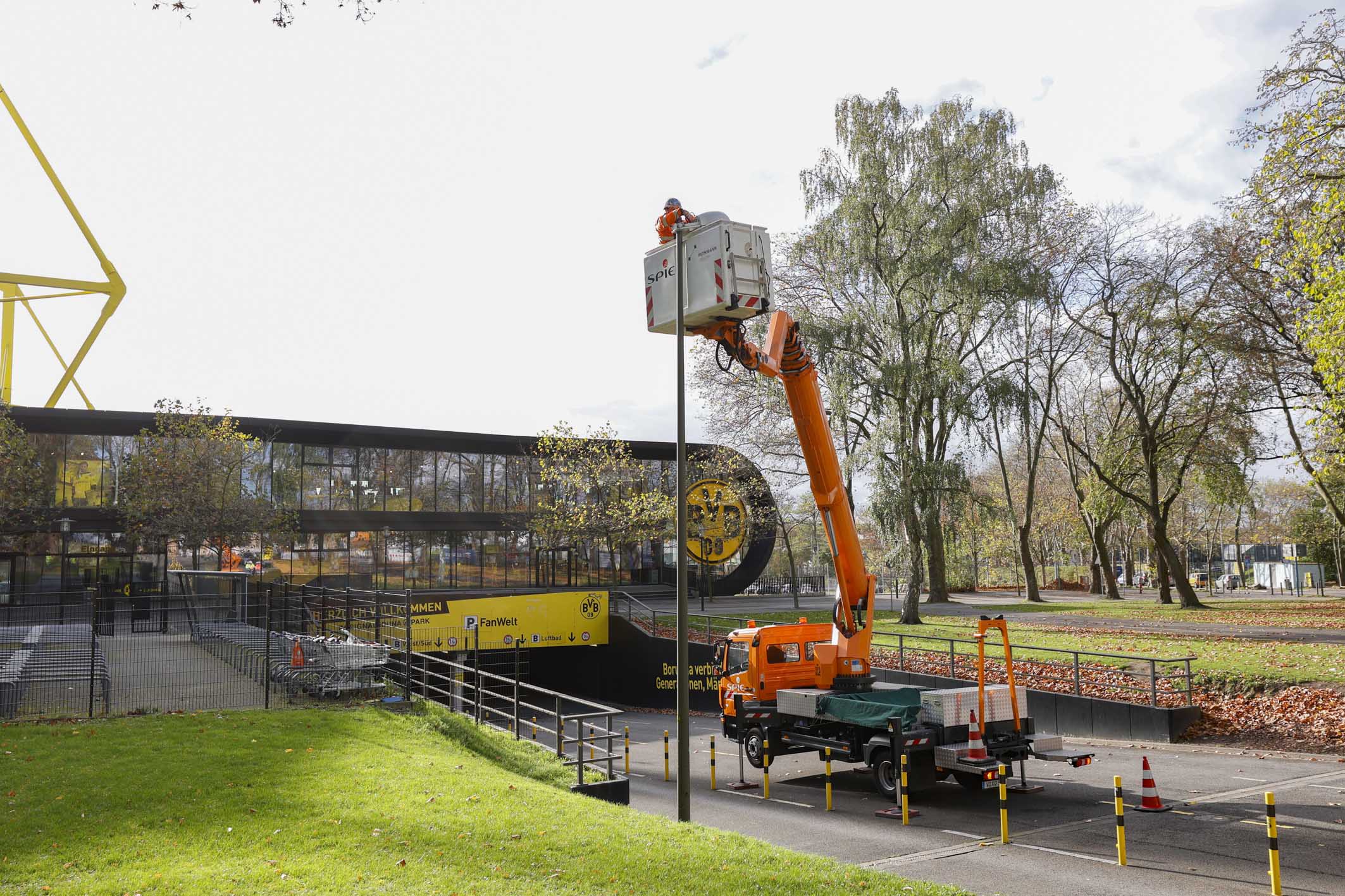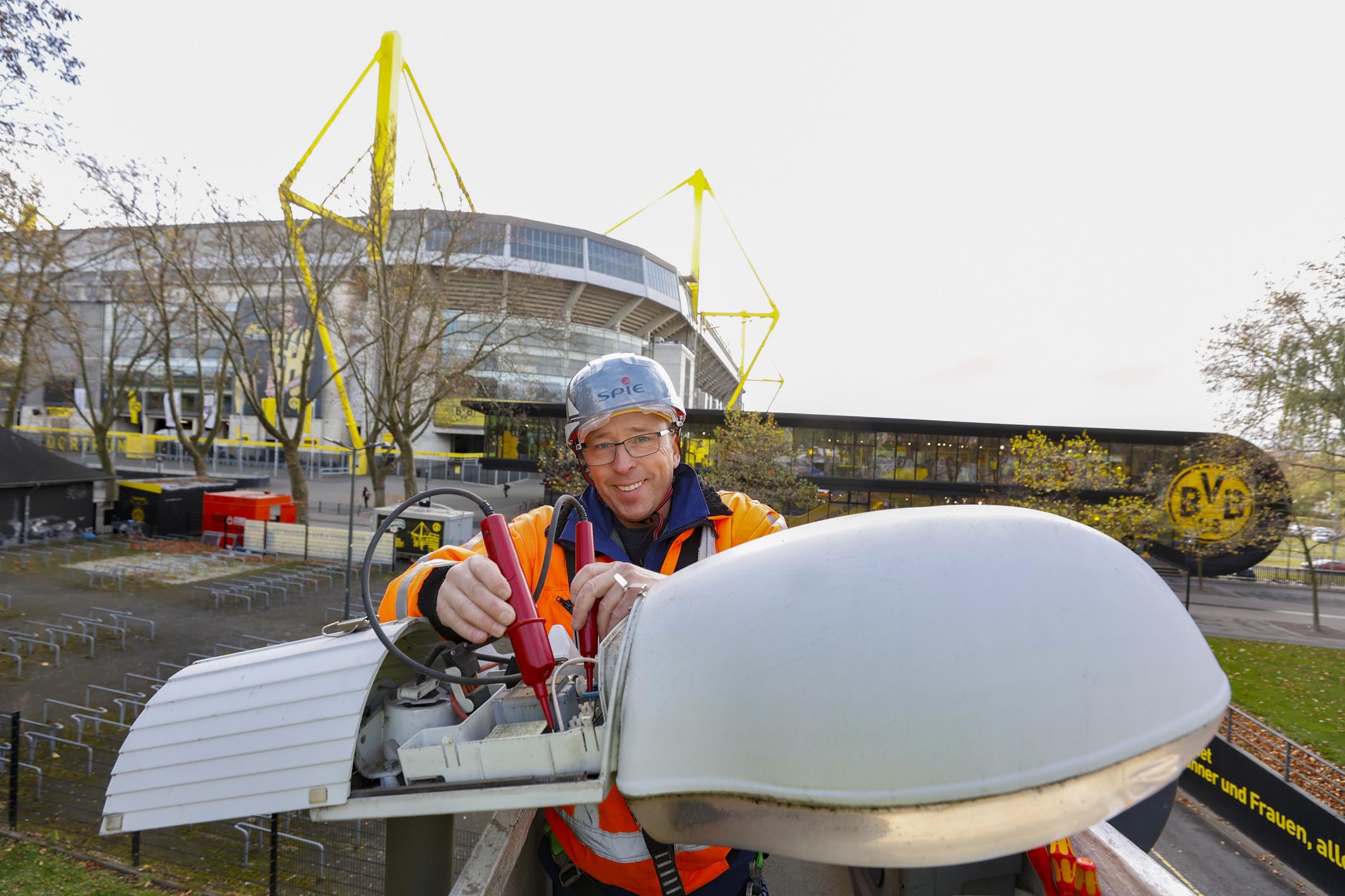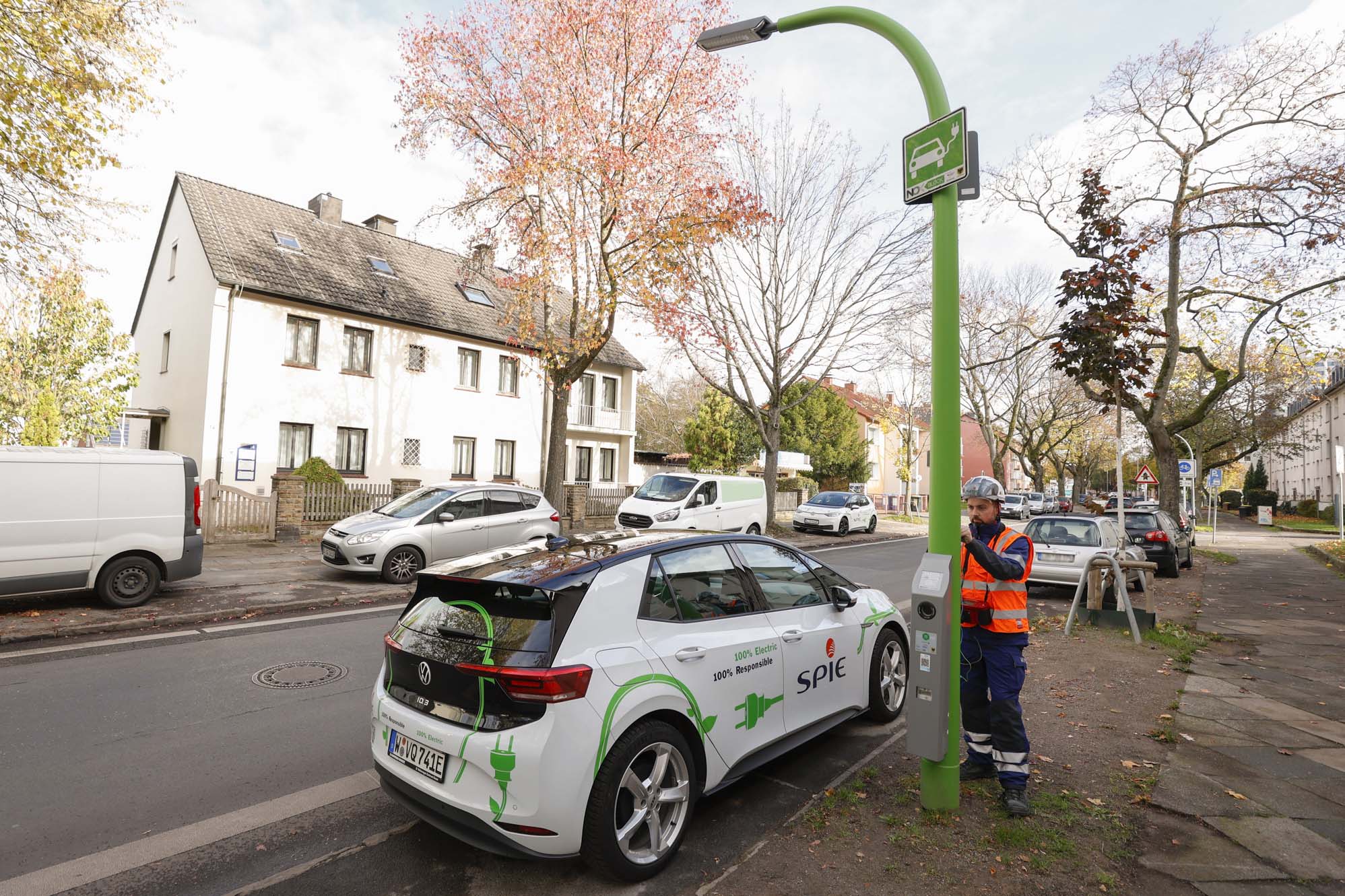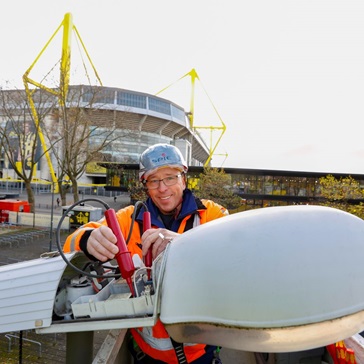Smart street lighting for the city of Dortmund
Dortmund’s lights get smart
Using the streets and public spaces safely and enjoying the nightlife in a city requires adequate lighting in streets and parks. But older lighting technology has high economic and environmental costs, which can be cut significantly by the use of modern LED lights. In its master plan for the energy transition, the city of Dortmund mandated that all of its streetlights be converted to LED and fitted with new wireless control systems.
‘In 2016, the city of Dortmund issued a Europe-wide invitation to tender for the conversion of all streetlights throughout the city,’ recalls Bodo Cirkel, Technical Manager of the Essen site at SPIE Deutschland & Zentraleuropa. ‘We submitted a joint bid with DEW21 and won the contract for the project. We’ve been converting the streetlights since 2017, integrating around 42,000 existing fixtures into a smart new lighting management system. The project should be completed by 2024.’
Major potential for cost-cutting with needs-based lighting
The light intensity of each fixture can be regulated digitally with the smart light management system, striking an ideal balance between energy efficiency and needs-based lighting. Each of the two steps – the conversion to LEDs and the smart technology – lowers energy consumption considerably: Dortmund expects savings of 60%. The ability to regulate the streetlights individually also means less light pollution, which benefits nocturnal animals in the city, particularly insects.
Digitalisation also has benefits for maintenance.

A complete IT-based management system combined with mobile data collection and processing technology enables our technicians to work efficiently when converting, repairing and maintaining the streetlights.
Bodo Cirkel, Technical Manager of the Essen branch
Streetlights as charging stations for electric vehicles
In addition to the streetlight conversions, our team worked with DEW21 to install 320 charging stations for electric vehicles in public lampposts in Dortmund over the past three years. This project’s primary aim is to help residents who have no charging station where they live and commuters who need access to public charging infrastructure. Because of heavy commuter traffic, nitrogen oxide concentrations are especially high. Switching to e-mobility can reduce local nitrogen oxide emissions and improve air quality. For these reasons, densely populated neighbourhoods with multi-storey housing were chosen as the locations of the new charging stations.
‘Now Dortmund residents can charge their electric vehicles with up to 11 kW directly from a streetlight. The new charging stations were integrated in existing streetlights that have been painted green. Our team was responsible for installing the charging stations, wiring them and connecting them to the grid,’ says Cirkel.






